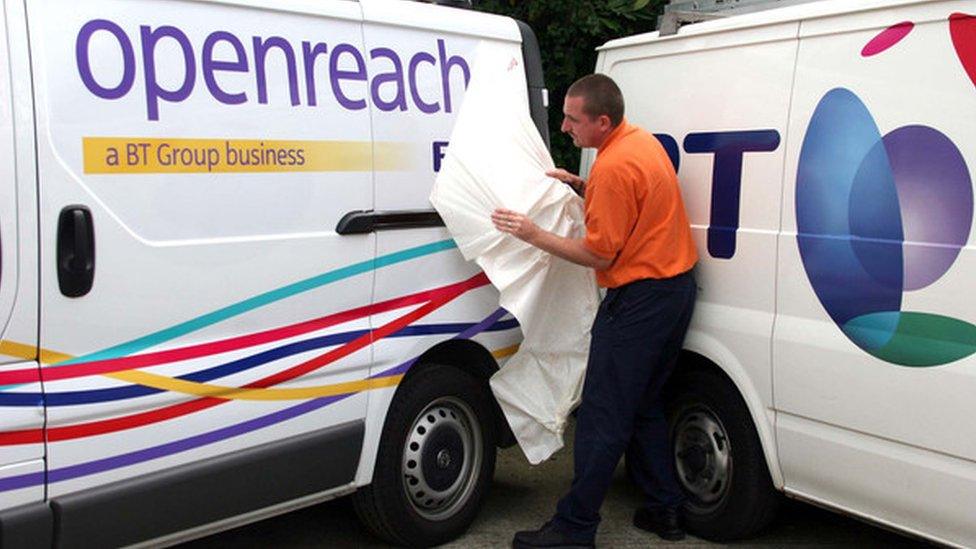Businesses call for faster UK broadband speeds
- Published

Business leaders' group the Institute of Directors (IoD) has accused the UK government of a "poverty of ambition" on broadband speeds.
An IoD report, Ultrafast Britain, says the UK is lagging behind many European nations when installing fibre optic cables that enable the fastest broadband connections.
It is calling for faster broadband access for homes and business.
A government spokesperson said most UK homes can get "superfast" broadband.
"Almost nine out of ten UK properties has access to superfast speeds and 95% of the UK will be reached by 2017," a spokesperson for the Department for Culture, Media and Sport told the BBC.
'Mediocre'
But the IoD believes the target should be higher and is calling for speeds of 10 gigabits per second (Gbps) by 2030, 1,000 times faster than the current official aim of 10 megabits per second (Mbps) by 2020.
"Now is the time to set a bold new target for genuinely world-beating broadband," said Dan Lewis, senior advisor on Infrastructure Policy at the IoD, and author of the report.
"We have the leading internet economy in the G20, and yet download speeds are mediocre and the coverage of fibre optic cable is woeful."
He added: "Unfortunately, the Government's current target displays a distinct poverty of ambition."
'Digital innovation'
Mr Lewis said the government needed to look at how the UK could provide the physical infrastructure needed to maintain a position "at the forefront of digital innovation in business".
IoD members interviewed for the report said that better broadband speeds could increase their company's productivity, make them more competitive, and enable them to offer more flexible working to their staff.
Openreach decision
The IoD report comes just days after communications watchdog Ofcom said BT must open up its cable network and allow competition to improve UK internet connections.
Ofcom also said there was a digital divide in the UK between those with the latest technologies, and those without.
It has proposed that decent, affordable broadband should be a universal right.
Rivals had called for a split between BT and its Openreach operation, which runs its cables, fibre and network infrastructure.
Companies such as Sky, Vodafone and TalkTalk, who pay to use the network, had claimed that BT underinvested in Openreach, leading to a poor service with interruptions and slow speeds.
- Published22 February 2016

- Published25 February 2016
